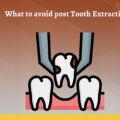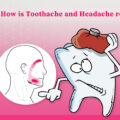
Root Canal Treatment
edental
7 August 2017
Root Canal Treatment (Endodontic Therapy)
Are you about to have your first root canal treatment?
Basically, Root Canal is a treatment to repair and save a badly inflamed or infected tooth.
The inflammation or infection can have a variety of causes: deep decay, repeated dental procedures on the tooth, faulty crowns, or a crack or chip in the tooth.
Root Canal Symptoms – Root Canal Treatment
- Severe toothache pain upon chewing or biting on a tooth. There may also be slight swelling. The tooth may also be sensitive to touch.
- Prolonged sensitivity (pain) to hot or cold temperatures
- Might have pain that starts in one tooth then radiates to other regions of your jaw or head.
- Might have a bubble on your gum that looks like a pimple and when pressed it may bleed or release pus
- Discoloration (darkening) of the tooth.
- Swelling and tenderness in nearby gums.
Is Root Canal Treatment Painful?
Remember, root canal treatment doesn’t cause pain, it relieves pain after root canal treatment. Many people worry that a root canal will be painful, something that was true in the past. Today, with advanced anesthesia options and surgical techniques – a root canal is as comfortable as getting a filling.
Root Canal Treatment (Endodontic) Steps

X- ray: Your dentist will first take X-rays or examine existing X-rays to make a proper assessment and accurate diagnosis of which tooth is affected and exactly what is causing the pain.
Anesthesia: Local anesthesia is administered via injections to numb the tooth to be treated and the surrounding
tissues.
Removing the Infected/Inflamed Tissue: The dentist numbs the tooth. An opening is made through the crown of the tooth to the pulp chamber. Special files are used to clean the infection and unhealthy pulp out of the canals. Then they shape the canals for the filling material. Irrigation is used to help clean the canals and remove debris.
Filling: The canals are filled with a permanent material. Typically this is done with a material known as
gutta-percha.
After the RCT is completed,The tooth is restored with post and Build up material before the crown is placed.
Root Canal Aftercare
- Since anesthetic has been used, parts of your mouth may be numb for several hours after the appointment. Avoid chewing and hot beverages until the numbness has worn off.
- Don’t Worry Too Much About Swelling. Mild swelling and bruising may follow your root canal treatment. These effects occur in the anesthetic point of entry and should subside in a short time.
- To protect the tooth and keep the temporary filling in place, avoid eating hard or sticky food (such as candy or gums), and try to chew on the other side of your mouth. Continue to brush and floss normally. Usually, the last step in a root canal is the placement of a crown or permanent filling in the tooth. A crown will protect the tooth from breaking in the future.
- Avoid chewing on hard foods – chewing on hard foods such as ice can cause teeth to break, and can harm root canals.
- Practice good oral hygiene – brush teeth twice a day, and floss at least once. Taking care of your teeth can help prevent future problems.
- Visit the dentist regularly – cleanings and examinations by dentists and hygienists.
Root canal treatment side effects
- First few days following the completion of a root canal, the tooth may feel sensitive due to natural tissue inflammation, especially if there was pain or infection before the procedure
- Reduced capability of treated tooth – As tooth structure is slightly weaken after Root canal treatment. It will not have its original capabilities.
- Slight Discoloration of tooth – As nerve is removed from tooth it causes slight discoloration. This discoloration is not noticeable in most patient. And in most cases as a crown is required after root canal treatment this discoloration is never visible. In cases where no dental cap is required bleaching can remove
discoloring. - Root canal treatment can fail in around 5% patient. This will lead to extraction of tooth
- Root canal treated tooth may become infected like other teeth. If a root canal treated tooth become infected extraction is only treatment.




